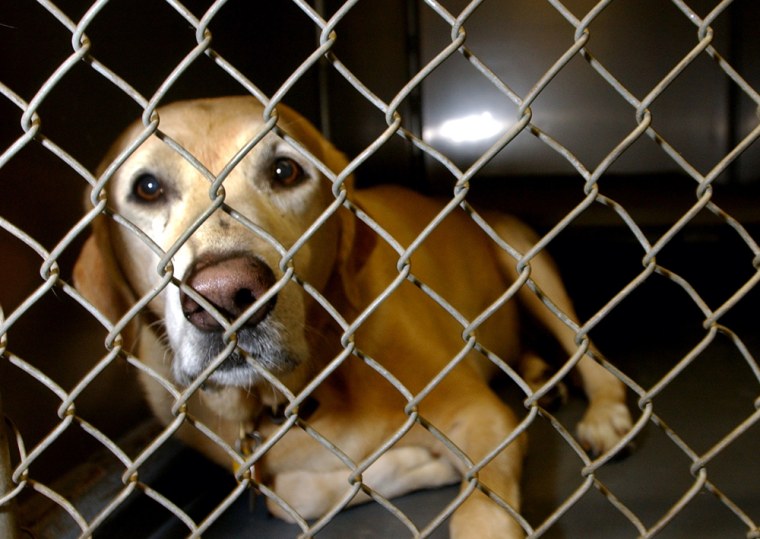Terry Ramey counted the days before she would see her beloved Walaze, the dog she left behind when she moved to Hawaii.
During their emotional reunion earlier this month at Honolulu International Airport, Ramey swept her black chow off its feet before being flooded with sloppy, wet kisses.
“I was so happy I thought I was going to pass out,” she said.
A little more than a year ago, that scene would have taken place at the state’s quarantine facility at Halawa. But this week marks the one year anniversary since Hawaii eased its strict rabies quarantine regulations, allowing most pets to be released to their owners shortly after they arrive in Hawaii — in five days or less — instead of quarantining them for up to four months.
In the year since Gov. Linda Lingle signed the new rules, pet owners have flocked to Hawaii, with a record 6,600 cats and dogs admitted in the fiscal year ending Wednesday — up from 4,681 in the previous year.
Rabies rules less stringent
Hawaii’s original quarantine law, imposed in 1912 to keep rabies off the islands, required all animals entering Hawaii to be kept at the state quarantine facility for four months. The rules were revised in 1997 to cut that stay to 30 days for animals with the required shots. Hawaii remains the only rabies-free state in the nation.
The new regulations for shots, bloodwork and paperwork are complex, and pet owners must plan ahead. The process that allows them to take pets home from the airport must begin at least four months before they arrive.
Pets that were vaccinated, have electronic microchip identification and a blood test showing a rabies vaccination response can bypass quarantine.
Pets that don’t meet the new rules are confined for 30 days if vaccination and testing requirements are met, or 120 days if they are not.
Dr. James Foppoli, the state veterinarian, said 75 percent of pets this year met the requirements and were released directly to their owners at the airport.
“Having had a pet go through the old quarantine process, I know the stress that was placed on the animal and the pet owner,” said the governor, whose cockapoo dog, Spooky, spent four months in quarantine when Lingle moved to Hawaii in 1975.
However, some pet owners still criticize Hawaii’s quarantine as cruel, costly and unnecessary.
“It’s cruelty to animals, absolutely,” said Chris Quackenbush, founder of the Community Quarantine Reform Coalition. “It was an awful experience for my dog and me.”
Foppoli said he thinks the new guidelines strike a good balance.
“It offers protection for the citizens of the state and it allows 75 percent of the people to bring their pets in without going through any quarantine.”
